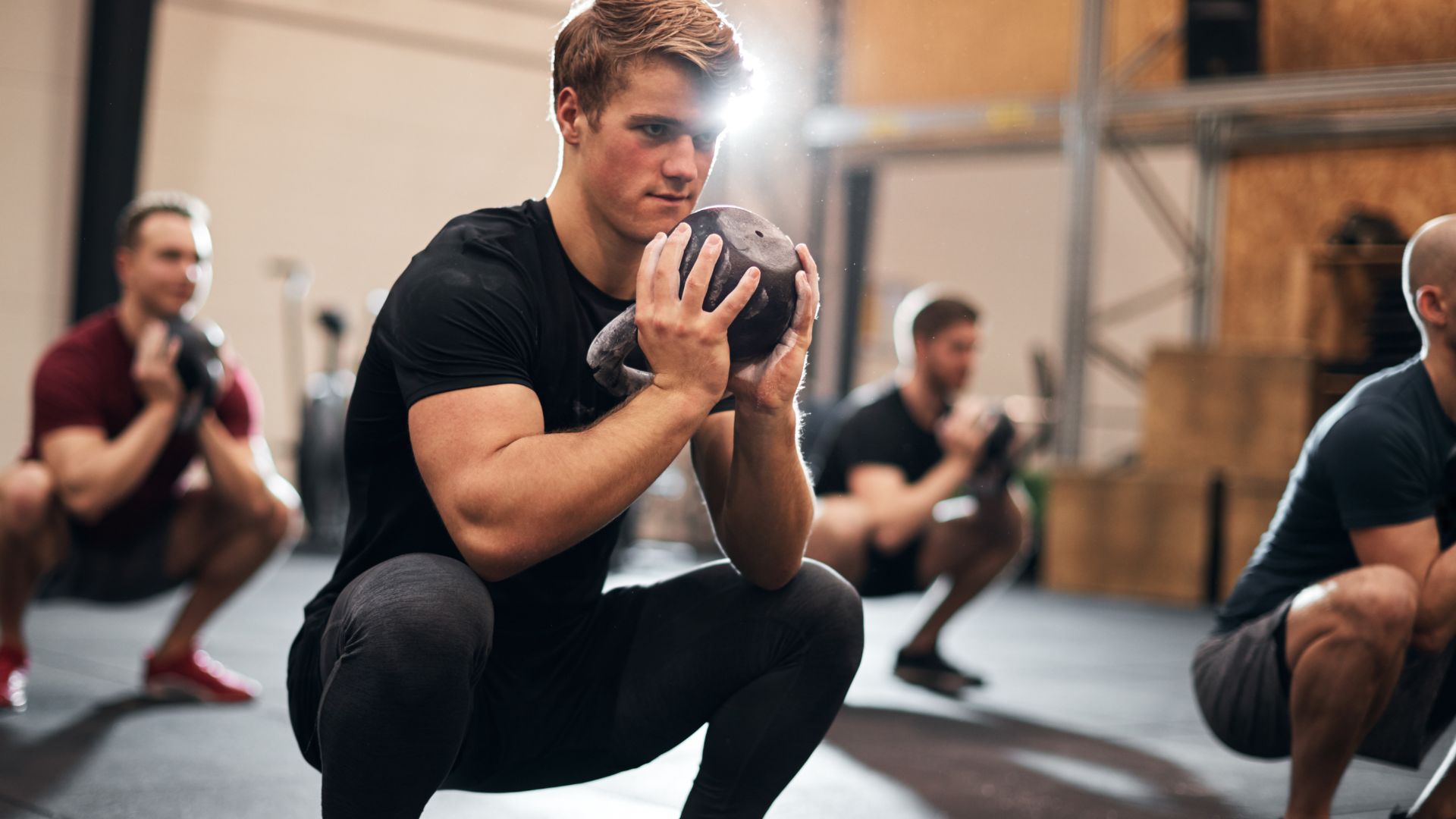Alright, let’s address the elephant in the room (or should I say, the gym) – farting during squats. It’s that awkward moment we’ve all heard about or perhaps experienced firsthand.
You’re in the middle of an intense squat session, pushing yourself to the limits, and suddenly, there it is a loud, unmistakable toot.
Your face turns the color of a ripe tomato, and you can practically feel the eyes of everyone around you dart in your direction.
But is it really such a big deal, or is there more to this than meets the eye (or nose)? Let’s dive into the world of squat-induced flatulence and get to the bottom of things.”
Exploring if whether farting so loudly when squatting is bad?
Farting loudly while squatting, or during any physical activity, is generally not harmful from a health perspective.
However, it can be a source of embarrassment or discomfort in social situations. Let’s break down the specifics:
Physiological Aspect: Farting is a natural bodily function that occurs when excess gas in your digestive system is released.
Squatting, like many other physical activities, can put pressure on your abdominal muscles and intestines, potentially causing the release of gas.
This is a normal and involuntary process, and it happens to everyone at some point.
Social Considerations: While farting during exercise is a natural occurrence, it can sometimes lead to social awkwardness or embarrassment, especially if you’re in a public gym or exercise class.
People may react differently to such situations, but in most cases, they understand that it’s a natural bodily function.
Prevention: If you’re concerned about farting loudly during squats, you can try a few strategies to minimize the likelihood including:
- Diet: Pay attention to your diet, as certain foods can contribute to excess gas. Foods like beans, cruciferous vegetables, and carbonated drinks are known culprits.
- Timing: Try to schedule your meals and bathroom breaks appropriately before your workout to reduce the chances of having excess gas.
- Relaxation: Sometimes, anxiety or tension can exacerbate gas issues. Relaxation techniques like deep breathing can help.
Hydration: Staying well-hydrated is essential for overall health, but excessive consumption of carbonated beverages can lead to increased gas production. Consider your hydration habits as well.
Exercise Benefits: Squatting is an excellent exercise for building lower body strength and stability.
The benefits of squatting far outweigh the potential for occasional embarrassment due to flatulence.
In other words, farting loudly while squatting is a natural bodily function and not inherently harmful. It’s more of a social concern.
By paying attention to your diet, timing, and relaxation techniques, you can minimize the chances of it happening in public.
Remember that most people understand that it’s a normal occurrence and won’t judge you harshly for it in a gym or exercise setting.
Further Explanations.
Let’s dive deeper and elaborate further on all the points mentioned.
Firstly though let’s delve into more detail about the physiological and social aspects of farting during physical activities like squatting:
Physiological Aspect:
Farting is a natural bodily function: When we eat or drink, we also swallow air. Additionally, our digestive system produces gases as it breaks down food.
These gases, including nitrogen, oxygen, carbon dioxide, and small amounts of other gases, accumulate in our digestive tract.
Pressure on abdominal muscles and intestines: When you engage in physical activities, especially those that involve bending, lifting, or compressing your abdomen (like squats), it can put pressure on your abdominal muscles and intestines. This pressure can squeeze the gases present in your digestive system.
Release of gas: When the pressure exceeds a certain threshold, the excess gas is released. This release can happen through the rectum, leading to a fart. It’s an entirely natural and involuntary process, and it occurs to varying degrees in everyone.
Variability: The likelihood of farting during exercise can vary from person to person, depending on factors like diet, body position, and how much gas is present in their digestive system at that moment.

Social Considerations:
Embarrassment in public settings: Farting loudly during exercise, especially in public places like a gym or exercise class, can lead to social awkwardness or embarrassment for some individuals. This is because flatulence is often considered a private bodily function in many cultures.
Reactions vary: People’s reactions to someone farting during exercise can differ. Some may ignore it completely, some may giggle or make a lighthearted comment, while others may feel uncomfortable.
Understanding: It’s important to note that most people understand that farting is a natural bodily function, and it can happen to anyone, particularly during physical activities. As a result, they tend to be understanding and may not judge someone too harshly for it.
In essence, farting during exercise, including squats, is a natural physiological response to the pressure on your abdominal muscles and intestines.
While it can be socially awkward or embarrassing, people generally understand that it’s a normal occurrence and tend to be forgiving in such situations.
Nonetheless, some individuals may still feel self-conscious about it and may want to take measures to minimize the chances of it happening in public settings.
Prevention.
let’s explore these prevention strategies in more detail:
1. Diet:
Gas-Inducing Foods:
Some foods are more likely to cause gas due to their composition. These include beans, lentils, broccoli, cabbage, Brussels sprouts, onions, garlic, carbonated drinks, and certain artificial sweeteners like sorbitol. Dairy products can also be problematic for some people if they are lactose intolerant.
Fiber:
While fiber-rich foods are essential for a healthy diet, they can lead to gas in some individuals, especially if you’re not used to consuming a lot of fiber. Gradually increasing your fiber intake and drinking plenty of water can help your digestive system adapt.
Food Diary:
Keeping a food diary can help you identify specific foods that consistently lead to excess gas. Once identified, you can consider reducing your intake of these foods before exercise.
2. Timing:
Meal Timing:
Try to schedule your meals so that you have enough time for digestion before your workout.
Eating a large meal right before exercising, especially one high in gas-producing foods, can increase the likelihood of experiencing gas during squats or other physical activities.
Pre-Exercise Snack:
If you need some energy before your workout, consider a light, easily digestible snack like a banana or a small serving of yogurt.
These options are less likely to cause excess gas compared to a heavy meal.
3. Relaxation Techniques:
Stress and Anxiety:
Anxiety and tension can exacerbate digestive issues, including gas. Practicing relaxation techniques, such as deep breathing, meditation, or yoga, before your workout can help calm your nerves and reduce the chances of experiencing gas due to stress.
Proper Warm-up:
Engage in a proper warm-up routine before your squats. This can help relax your muscles and may reduce tension in your abdominal area.
Remember that the goal of these strategies is to minimize the chances of experiencing excessive gas during exercise.
While they can be helpful, it’s also important to recognize that occasional flatulence during physical activities is a natural and normal occurrence for many people.
If you find that excessive gas or digestive discomfort is a persistent issue, it may be a good idea to consult with a healthcare professional to rule out any underlying digestive conditions.
Let’s explore the importance of hydration and the benefits of squatting in more detail:
Hydration.
Importance of Hydration:
Staying well-hydrated is crucial for overall health and optimal physical performance.
Proper hydration helps regulate body temperature, supports the circulatory system, and aids in nutrient transport to cells.
Excessive Carbonated Beverages:
Carbonated beverages, such as sodas or sparkling water, contain carbon dioxide gas, which can contribute to increased gas in your digestive system.
Excessive consumption of these beverages can lead to bloating and increased likelihood of flatulence.
Consider Your Hydration Habits:
It’s important to balance your hydration needs with the choice of beverages. Water is the best choice for maintaining proper hydration without introducing excess gas into your digestive system.
If you enjoy carbonated beverages, it’s fine to consume them in moderation, but be mindful of their potential effects on your digestive comfort, especially before exercise.
In summary, while the occasional embarrassment due to flatulence during squats or other exercises is a social concern, it should not deter you from the numerous benefits of squatting.
Squats are an effective way to build lower body strength, stability, and overall fitness. Staying hydrated with an emphasis on water consumption and being mindful of your diet can help you enjoy these benefits while managing the potential for gas-related discomfort.
The health advantages of regular exercise far outweigh the transient social discomfort that might arise from a natural bodily function.
A concise tabular on this topic here.
Here’s a concise table summarizing the key aspects of farting loudly during squatting:
| Aspect | Description |
|---|---|
| Physiological Aspect | – Natural bodily function caused by excess gas release. |
| – Occurs due to pressure on abdominal muscles during squats. | |
| – Normal and involuntary process experienced by everyone. | |
| Social Considerations | – May lead to social awkwardness or embarrassment. |
| – People’s reactions vary, but most understand it’s natural. | |
| Prevention Strategies | – Diet: Avoid gas-inducing foods before exercise. |
| – Timing: Schedule meals and bathroom breaks appropriately. | |
| – Relaxation: Practice deep breathing to reduce anxiety. | |
| Hydration | – Staying well-hydrated is essential for overall health. |
| – Excessive carbonated beverages can contribute to gas. | |
| Exercise Benefits | – Squatting builds lower body strength and stability. |
| – Promotes functional movements and better posture. | |
| – Aids in bone health, metabolism, and hormonal response. | |
| – Reduces the risk of injury and supports overall fitness. | |
| Overall Assessment | – Farting during squats is a natural occurrence. |
| – Social discomfort is possible but generally understood. | |
| – Benefits of squatting outweigh transient embarrassment. |
This table provides a concise overview of the topic, highlighting the physiological, social, and prevention aspects, as well as emphasizing the importance of hydration and the overall benefits of squatting.
Conclusion.
In conclusion, farting loudly when doing squats is a natural physiological response to the pressure on abdominal muscles and intestines, and it happens to everyone at some point.
While it may lead to social awkwardness or embarrassment, it’s generally understood as a normal bodily function. To mitigate this, individuals can adopt prevention strategies like dietary adjustments, proper meal timing, and relaxation techniques.
Staying well-hydrated with a focus on water intake is also crucial. Importantly, the numerous benefits of squatting, including improved lower body strength, stability, and overall fitness, far outweigh the transient discomfort that may arise from this natural occurrence.

Hey there, it’s Mike Rrsq, the Editor-in-Chief over at Jsquat.com, and I’m absolutely obsessed with all things squat fitness! I’ve been lucky enough to get some serious recognition for my work in this field. With a solid background in the fitness and wellness industry, I’ve been there right from the get-go, helping shape this website into what it is today.
You see, I’m not just the boss around here; I’m also a passionate contributor. I love sharing my insights through my articles, and trust me, they’re not your run-of-the-mill stuff. Each piece I write is a labor of love, filled with my expertise and real-world experience in the fitness universe. So, if you’re into fitness and looking for some inspiration, you’re in the right place!

